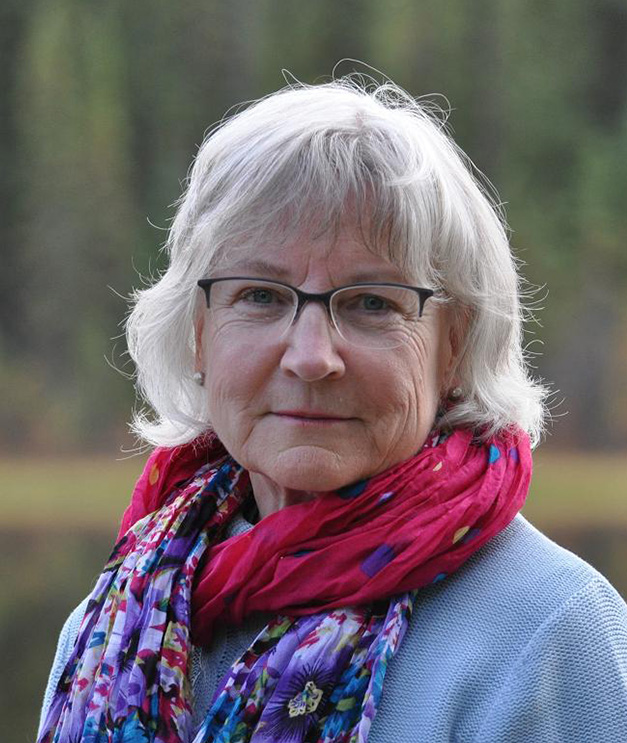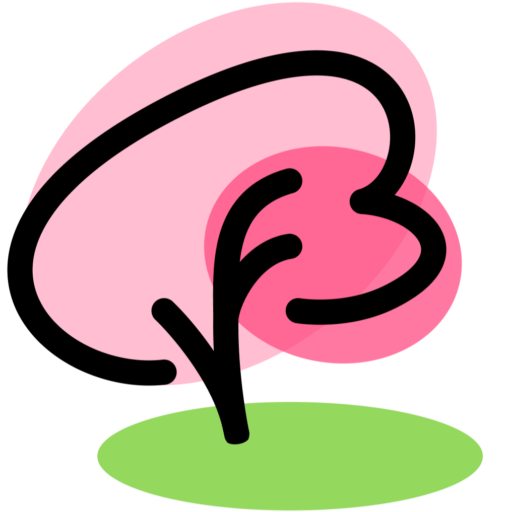Charlotte Hrenchuk

the foster child’s
backward glance
falling cherry blossoms
Charlotte Hrenchuk
Whitehorse, Yukon
Congratulations on having your haiku selected as the top winner in the Canada category in the Vancouver Cherry Blossom Festival’s 2021 Haiku Invitational contest. How did you first learn about haiku, and how much writing of haiku or other poetry have you done?
Thank you. It is a great honour and such a gift. I have written short poems and prose throughout my life but seriously began to write haiku when I joined Solstice Haiku about five years ago. Solstice Haiku, founded and facilitated by the poet kjmunro (Katherine Munro), is a local monthly haiku discussion group in Whitehorse, Yukon Territory, that provides information, valuable feedback, events such as ginko [haiku writing] walks, and a connection to the wider world of haiku. We also explore and write renku. I am a member of Haiku Canada. The more I learn, the more I am hooked by haiku and related forms of haibun and tanka. I love the elegance and seeming simplicity of the form and finding the beauty in everyday life and nature. My work has been published in Haiku Canada Review, Hedgerow, Kingfisher, Bottle Rockets, and in several anthologies, including Body of Evidence: A Collection of Killer Ku edited by kjmunro and Jessica Simon and Moving Meditation edited by Lynne Jambor.
What was the inspiration for your winning poem?
I have been a researcher, writer, and advocate for social justice issues most of my working life. Over the years, I have heard many poignant stories of the foster care system, mostly heartbreaking, some heartwarming. I also learned that making change is possible by touching people’s hearts with stories. I tried to capture the essence of these stories with my haiku, giving them a wider voice. I am also at a point in my life when there is more looking backward than forward.
Describe the moment when you first learned you had won.
I was home alone when I received the email notification saying “Congratulations.” I thought it was another email scam so skipped it. When I went back to it, I could not believe my eyes! I was astonished, and more than a little overwhelmed. I had to reread the email about five times before it sank in. The judges’ comments made it real and it was gratifying to know they had connected with the poem. My husband happened to call then so I shared the news with him. Since Katherine Munro has been so instrumental in my growth as a haiku poet, I fired off an email to her and then danced the dog around the house!
Do you have favourite books or websites relating to haiku that others might benefit from in order to learn haiku as a literary art and to share one’s haiku?
The most helpful thing for me is participating in Solstice Haiku. The opportunity to workshop poems, to broaden my scope, and to benefit from the support, encouragement, and gentle critique of kjmunro and the group is invaluable. Two books we have discussed and I find useful are The Wonder Code by Scott Mason and The Haiku Life by Michele Root-Bernstein and Francine Banworth. Most beneficial is reading haiku and more haiku. I read as many online and print publications as I can and subscribe to Tinywords daily haiku. I look forward to Haiku Canada Review and the group’s member anthologies. The Haiku Foundation website is a wealth of information, as is the Graceguts website. For a year, I wrote and submitted to the weekly prompts on the Haiku Foundation’s “Haiku Dialogue” blog, which was a very useful exercise for finding my way. Reading the poems from around the world and the comments of the editors is an education in itself.
Please tell us more about yourself.
I worked for a small feminist, nonprofit organization for about 20 years researching, writing about, and advocating for women’s equality issues before retiring in December 2018. Retirement has been a huge adjustment and a gift. Writing haiku has helped me connect and reflect on seemingly disparate parts of my life and notice the joy in small things. The year I retired, I received the Governor General’s Award in Commemoration of the Persons Case in recognition of my contributions in advancing women’s equality in the Yukon and northern Canada. My husband and I have three wonderful adult children who, unfortunately, live outside the Yukon. We are hoping to entice them back. I love books, gardening, hiking and backpacking, mountains, travel, cross-country skiing, bird watching, and knitting. I am a volunteer cochair for the Yukon Anti-Poverty Coalition and am president of Hidden Histories Society Yukon that explores Black and Asian history in the Yukon. My life is full.
How does where you live and what you enjoy doing affect the way you write haiku?
I live in a very beautiful and peaceful part of the world beside a small lake, in the country, outside Whitehorse, Yukon, within the traditional territory of Kwanlin Dün First Nation and the Ta’an Kwäch’än Council. In the summer there are ducks and frogs, and other wildlife all year round. Being a northerner greatly informs my work. Where I live grounds me and allows my imagination and creativity to flow. It provides a calm place for reflection, observation, and inspiration. The stillness of our long winters is a foil for the seemingly never-ending turmoil and sorrows in the world. My love of living close to nature is reflected in many of my haiku.

